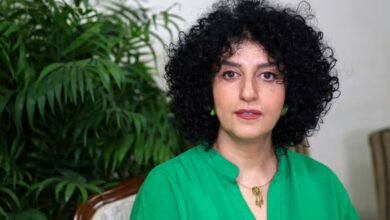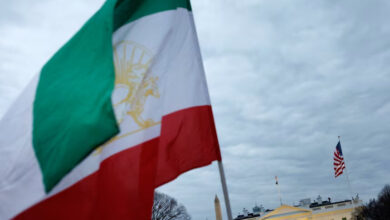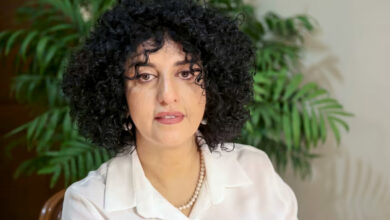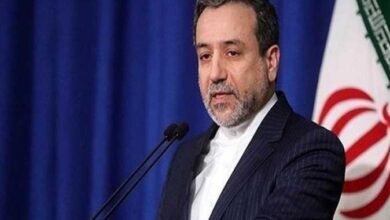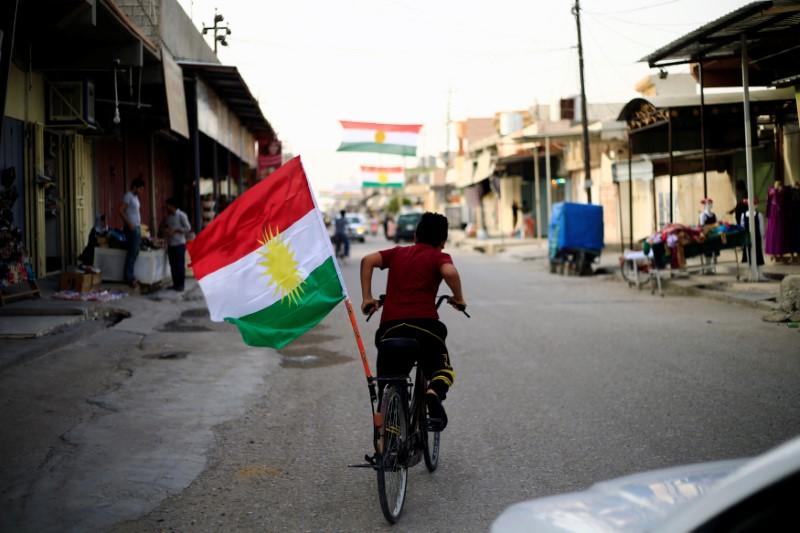
As Iraq emerges from three years of war with the Islamic State group, the US is looking to roll back the influence of neighboring Iran and help the central government resolve its dispute with the Kurdish region, the American envoy to the country told The Associated Press.
US Ambassador Douglas Silliman took up his post in Baghdad in September 2016, just weeks before the start of the operation to retake the northern city of Mosul. With IS now driven out of all the territory it once held and Iraq’s declaration that the war against the extremists is over, he says Washington is focused on keeping the peace and rebuilding, and sees Iran’s influence as a problem.
“Iran simply does not respect the sovereignty of its neighbors,” Silliman said. “The Iranians have — to some extent — assisted the government of Iraq in defeating ISIS,” he said, using an alternative acronym for IS. “But frankly I have not seen the Iranians donating money for humanitarian assistance, I have not seen them contributing to the UN stabilization program.”
Iran gained major influence in Iraq after the 2003 US-led invasion toppled Saddam Hussein’s Sunni-led dictatorship and empowered the country’s Shiite majority.
When IS swept across northern and central Iraq in the summer of 2014, Iran-backed militias mobilized in the country’s defense, providing a bulwark in many areas while the beleaguered armed forces were rebuilt. The now state-sanctioned paramilitaries, known as the Popular Mobilization Forces, consist of tens of thousands of mostly Shiite fighters deployed across the country. Victories against IS have made their leaders increasingly powerful.
The Trump administration has called for the paramilitary forces to disband after the IS fight is complete. It has also vowed to take a much tougher line on Iran, threatening to pull the US out of the landmark 2015 nuclear agreement and levying sanctions on Iran’s powerful Revolutionary Guard.
Iraq is meanwhile seeking external support for reconstruction after the war, which the government says caused an estimated $100 billion in damage. Some 3 million Iraqis are still displaced, months after major fighting ended.
The Trump administration has made clear that the $14.3 billion military campaign against IS will not be replaced with a similarly funded reconstruction effort. International aid organizations are instead looking to wealthy Gulf states.
“Iraq is coming out of a difficult period where there had been a lot of economic destruction, lots of social disruption and we think that it is important for Iraq to have good, positive relationships with all of its neighbors, and Iran is included in that,” Silliman said.
He said the US was encouraged by recent Iraqi efforts to reach out to Saudi Arabia and Jordan, allies that it hopes will play a bigger role in the country going forward.
The US is also hoping to help calm tensions between the central government and the northern Kurdish region following a September independence referendum that was rejected by Baghdad. Federal forces clashed with Kurdish fighters in October as Baghdad retook disputed territories that the Kurds had seized from IS.
“The relatively modest role we are playing is to help both sides find ways to walk through the door of discussions,” Silliman said, explaining that while both sides support “the idea” of discussions, negotiations to end the crisis have not yet begun.

